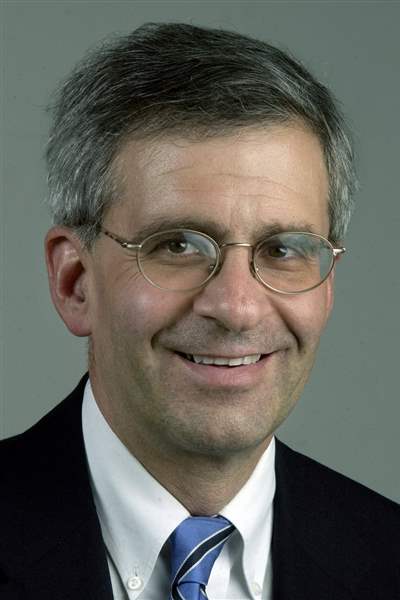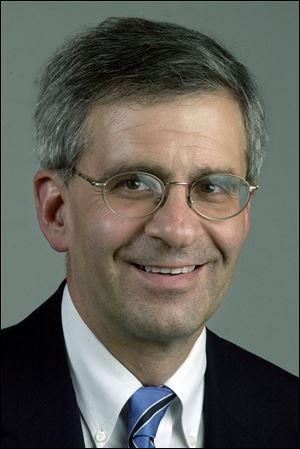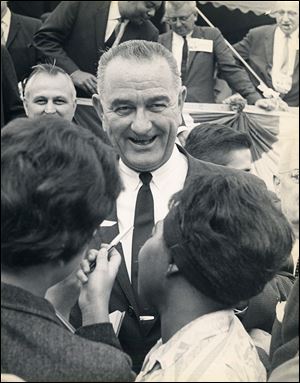
COMMENTARY
The battle over LBJ’s place in history is joined
3/16/2014
Shribman

Shribman
Was he a romantic with a vision of an America free of poverty and ignorance? Was he a craven war leader, sacrificing tens of thousands of lives to his fear of losing to a small country in battle — or the presidency in impeachment?
Did he create a nation that celebrated and elevated fairness and justice? Or did his policies perpetuate social pathology and sow dependence?
An unusual battle for history is under way, pitting American memory against the historical legacy of an American president.
There hasn’t been an intellectual struggle like this for years. But the battle over how to regard Lyndon Baines Johnson almost certainly will be more emotional, more tendentious, and more significant than the last struggle of this kind, over how history should rate Harry S. Truman.
The Truman battle over war (Korea), race (desegregating the Armed Forces), and style (the down-home manner of Independence, Mo.) was but a miniature version of the Johnson legacy of war (Vietnam), race (two civil-rights bills, bloody marches, and urban unrest), and style (the brutality of the political perdition Mr. Johnson threatened to the reluctant and the rebellious).
In this battle are Johnson loyalists, particularly his daughters and some surviving former aides; Johnson rivals, especially those who will never forgive him for Vietnam; Johnson revisionists, who opposed him in life but came to recognize his vision and virtues after he died; Johnson folklorists, who exaggerate physical characteristics and a personal character that once were so overpowering they seemed immune to exaggeration, and Johnson ingenues, who never knew Mr. Johnson or didn’t live in the Johnson years but view him as a distant figure.

President Lyndon Baines Johnson greets a crowd as he campaigns in Toledo in 1963.
All this because the gentle water-color wash of half-century retrospectives, so warm and kind to his martyred predecessor, John F. Kennedy, makes a new series of 50th-anniversary reassessments — on the War on Poverty this winter, on the famous Great Society speech at the University of Michigan in May, with the Civil Rights bill in July, and more to follow — irresistible and perhaps even necessary.
Ordinarily, a half-century’s passage is enough to quell the chants and cheers of events long ago. But the events of 1963 to 1969 are so central to our national identity that the passions of the Johnson period have not dimmed.
At this juncture of judgment, all of the many faces of Mr. Johnson are colliding: the visionary and the reactionary, the idealist and the ideologue, the wily negotiator and the stubborn autocrat, above all the strongman and the broken man. In the Kennedy retrospectives last year, Mr. Johnson was an afterthought — bored, ridiculed, peripheral.
In this year’s retrospectives, he will be engaged, feared, central. He was blamed for city riots, student protests, family permissiveness, and street violence by the time he left office in January, 1969.
In the White House today is a legatee of the Johnson years, a black man who acknowledges he was the beneficiary of LBJ initiatives and whose health-care plan has antecedents in the Great Society. Yet President Obama repeatedly is criticized for not being more like President Johnson — for not herding vast amounts of legislation through Congress, for not bending lawmakers to his will, for not seducing his putative supporters into submission over Cutty Sark and sweet talk.
The 36th president lingers in the American consciousness by virtue of the triumphs and the tragedies that filled his era. This year and the years that follow will be filled with historical reruns.
Mr. Johnson as president didn’t get everything right. But now it’s important for us to get Mr. Johnson right.
David Shribman is executive editor of the Pittsburgh Post-Gazette.
Contact him at: dshribman@post-gazette.com